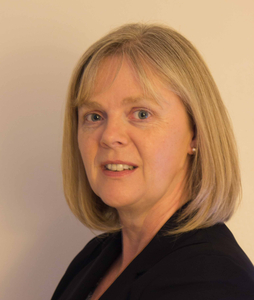The initiative was developed under the Ireland for Finance strategy within the Department of Finance and includes a promotional video, together with a collection of job profiles that describe a range of roles that go beyond those typically associated with a career in Ireland’s financial services industry. The case studies show how people have progressed their careers in finance and highlights the education choices that helped them get there. The resources are available through the career guidance website CareersPortal.ie.
The 30% Club is a global campaign committed to achieving better gender balance at leadership levels and throughout organisations. The Irish chapter of the 30% Club was established in 2015, a body with gender specific objectives, and this initiative, developed by the chapter’s Financial Services Group, though not gender specific, is definitely intended to attract more young women to pursue FS careers.

Gillian Hartford: "the gender pay gap is often driven much more by unequal representation of women in higher paid senior roles, than pay equity within roles, and the two shouldn't be confused"
The project is an ‘Action Measure’ of the 2021 Ireland for Finance Action Plan under its ‘Talent Pillar’. Minister for Financial Services, Insurance and Credit Unions at the Department of Finance, Sean Fleming T.D. last month recognised the 30% Club for delivering the initiative which he described as ‘as an important step in raising awareness among younger people of the potential opportunities that a career in financial services can offer them’.
On the initiative Gillian Harford, Country Executive with the 30% Club speaking to Finance Dublin “ said “Choosing career options is challenging for any young person, particularly when jobs of the future are constantly being reimagined. We were eager to show the wide range of roles that go well beyond the most well-known and instead demonstrate a much broader range of opportunities for building a sustainable and successful career in a modern tech-led industry - with diverse and interesting career paths, a strong reputation for investing in education and training, and an important part of the Irish economy”.
The 30% Club’s mission is to achieve at least 30% representation of all women on boards and at c-suite level globally across all organisations. On how this goal should be achieved Hartford said ‘There is a balance to be struck between telling companies what to do and encouraging them to do it. Quotas tend to encourage a ceiling rather than a floor and many quota-based countries have seen no improvement in the number of female executives, which is the sustainable solution in developing pipeline talent. Targets work just as well as quotas if publicly managed and communicated. There is accountability in setting targets, and it drives better behaviours.’
Hartford cited the success of this approach in Ireland since the establishment of the Irish chapter 6 years ago. During this period female representation on boards of Irish Stock Exchange companies has risen from a low of 12 per cent to 31 per cent in March 2021. Hartford said the success was based on a combination of company actions and encouragement for self-managed targets through Balance for Better Business, the government initiative driving greater gender balance across boards in Ireland. However, Hartford warns that ‘for gender diversity to be sustainable at board levels over time, organisation practices must focus on delivering on a pipeline of talent, which realistically comes from senior management.’
Another area of focus currently for the 30% Club is the July 2021 introduction of Gender Pay Gap Reporting (GPGR) rules in Ireland. GPGR is now a legal requirement for companies with over 250 employees, a figure that is expected to reduce over time to include all companies with 50 or more employees. With the GPG reporting process expected to begin in 2022 Hartford welcomes its introduction as it ‘brings greater transparency’ for all stakeholders and ‘can support the attraction of talent and it drives diversity action, which in turns drives better business performance’. Ireland’s gender pay gap is forecast by the OECD to be in the region of 14-16%.
However, Hartford said the gender pay gap is ‘often driven much more by unequal representation of women in higher paid senior roles, than pay equity within roles, and the two shouldn’t be confused.
In the financial services sector, 55% of the workforce is female, but less than 25% of the top jobs are held by women – because GPGR is about aggregated averages, this distortion in representation impacts on the gap. In the UK, financial services reported a gap of almost 30%, but every organisation cited strong evidence of representation issues and very little difference in like for like role comparisons.’
‘A detailed assessment of the current data provides real evidence as to why anomalies exist and what can be done to address these – especially where any real pay equity concerns are raised – versus representation issues which will take more time to resolve. The real value in Gender Pay Gap Reporting, is in driving action for change,’ she added.
The Irish chapter was formally launched in 2015, and currently has over 280 member organisations representing over 600,000 employees across the country, including major financial services employers Citigroup, Northern Trust, AIB and Bank of Ireland.
